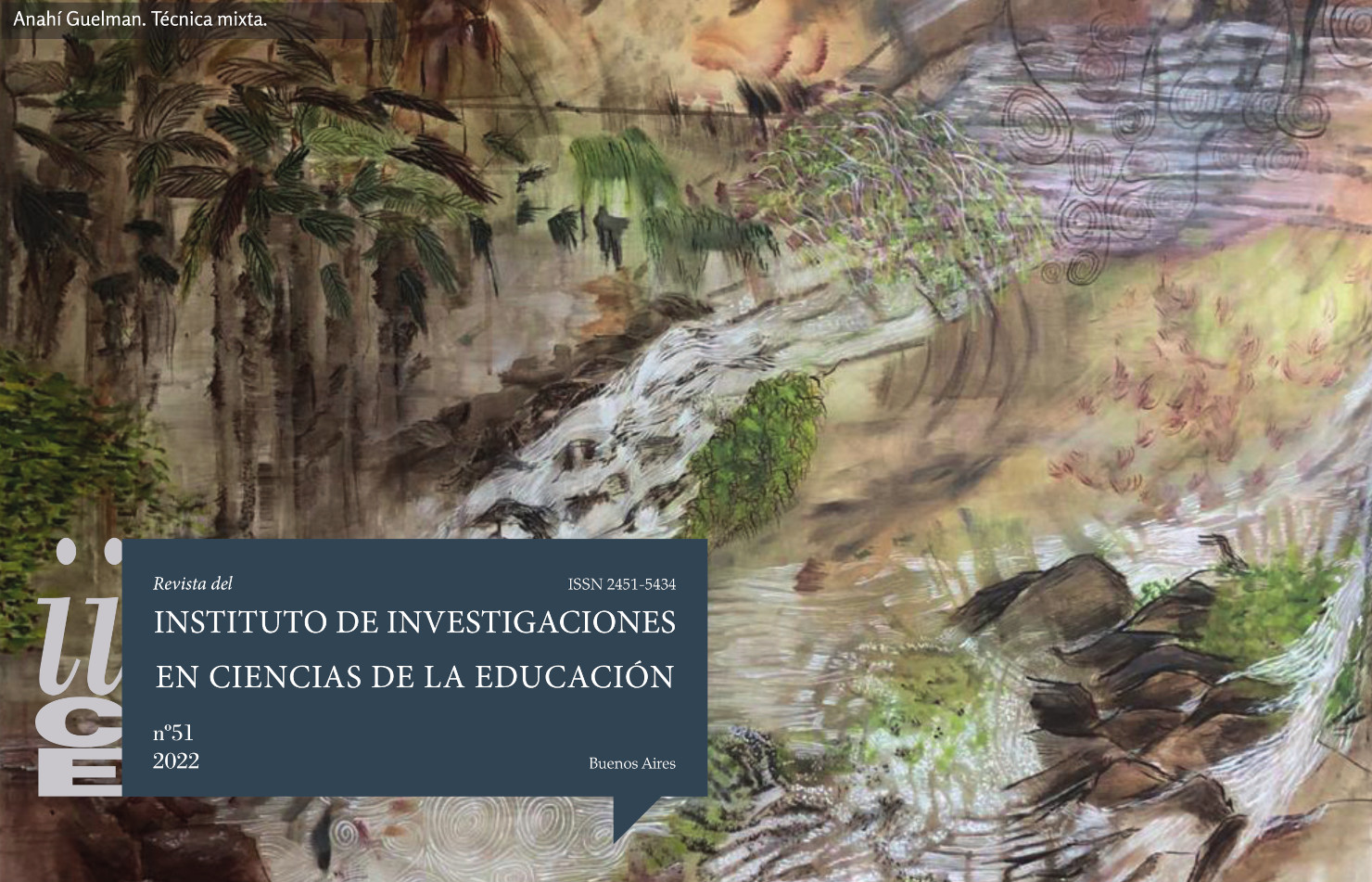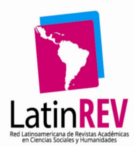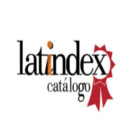Presentación del dossier
Resumen
PresentaciónDescargas
Citas
Agamben, G. (2020). Requiem por los estudiantes. Blog Artillería Inmanente, 23/05/2020, disponible en: https://artilleriainmanente.noblogs.org/?p=1514
[último acceso Junio 1, 2021]
Benjamin, W. (2008). Tesis sobre la historia y otros fragmentos (trad. e introd. Bolívar Echeverría). Ciudad de México: Itaca-Universidad Autónoma de la Ciudad de México.
Benza, G. y G. Kessler (2021) La ¿nueva? estructura social de América Latina. Cambios y persistencias después de la ola de gobiernos progresistas. Buenos Aires: Siglo XXI.
Bildungsgeschichte IJHE Editorial Board (2021). Coronation or Educona? Pardon me?!? Bildungsgeschichte. International Journal for the Historiography of Education, 11 (1), 55-57.
Cone, L. et al (2021). Pandemic Acceleration: Covid-19 and the emergency digitalization of European education. European Educational Research Journal, 1-24, DOI: 10.1177/14749041211041793
Couldry, N. y U. Mejías (2019). The costs of connection. How data is colonizing human life and appropriating it for capitalism. Palo Alto, CA: Stanford University Press.
Cowen, R. (2014). Ways of knowing, outcomes and ‘comparative education’: be careful what you pray for. Comparative Education, 50 (3), 282-301. DOI: 10.1080/03050068.2014.921370
Dijck, J. van (2016). La cultura de la conectividad. Una historia crítica de las redes sociales. Buenos Aires, Siglo XXI editores.
Dussel, I. (2021). The futures of teaching. Background paper prepared for the Futures of Education Initiative. International Task Force on Teachers for Education 2030. Paris: UNESCO. Available at: https://teachertaskforce.org/sites/default/files/2021-07/Futures%20of%20Teaching_2021%20rev%2013Jul_0.pdf
Dussel, I. (2013). The assembling of schooling. Discussing concepts and models for understanding the historical production of modern schooling. European Education Research Journal, 12 (2), 176-189.
Dussel, I., P. Ferrante. y D. Pulfer (2021). Nuevas ecuaciones entre educación, sociedad, tecnología y Estado. En I. Dussel, P. Ferrante. y D. Pulfer (Comps.) Pensar la educación en tiempos de pandemia (pp. 351-364). Buenos Aires: UNIPE.
Feierstein, D. (2021) Pandemia. Un balance social y político de la crisis del Covid-19. Buenos Aires: Fondo de Cultura Económica.
Herlinghaus, H. (2013). Narcoepics. A global aesthetics of sobriety. Bloomsbury: London.
McLeod, J. (2009). Youth studies, comparative inquiry, and the local/global problematic, Review of Education, Pedagogy, and Cultural Studies, 31 (4), 270-292.
Novella, E.J. (2021). COVID-19 and the emotional culture of pandemics: a retrospective and prospective view. Paedagogica Historica, DOI: 10.1080/00309230.2021.2008993
Pérez Sáinz, J. (2020). El imaginario de las desigualdades en América Latina. ¿Es necesaria otra mirada? En E. Jelin, R. Motta y S. Costa (Eds.), Repensar las desigualdades. Cómo se producen y entrelazan las asimetrías globales (y qué hace la gente con eso) (p. 137-153). Buenos Aires: Siglo XXI.
Peters, M., F. Rizvi, G. McCulloch et al. (2020). Reimagining the new pedagogical possibilities for universities post-Covid-19: An EPAT Collective Project. Educational Philosophy and Theory, DOI: https://doi.org/10.1080/00131857.2020.1777655
Puiggrós, A. (2020). Balance del estado de la educación, en época de pandemia en América Latina: el caso de Argentina. En I. Dussel, P. Ferrante. y D. Pulfer (Comps.) Pensar la educación en tiempos de pandemia (pp. 33-42). Buenos Aires: UNIPE.
Rockwell, E. (2018). Temporalidad y cotidianeidad en las culturas escolares. Cuadernos de Antropología Social, 47, 21-32.
Saint-Fuscien, E. entrevistado por Annie Tobaty (2021). L’école face à l’épreuve: quelle histoire? Administration et Éducation, 169, 15-22.
Shahjanan, R. & A. Kezar (2013). Beyond the ''national container'': addressing methodological nationalism in higher education research. Educational Researcher, 42 (1), 20-29.
Simons, M. y J. Masschelein (2014). Defensa de la escuela. Una cuestión pública. Buenos Aires: Miño y Dávila.
Southwell, M. (2011). Pasado y presente de la forma escolar para la escuela media. Praxis educativa, 6 (1), 67-78.
Stiegler, B. (2021). De la Démocratie en Pandémie. Santé, Recherche, Éducation. Paris: Tracts Gallimard.
UNESCO (2021). COVID-19 Educational Disruption and Response. Available at:
https://en.unesco.org/covid19/educationresponse (last retrieved: Dec 15, 2021)
Vassiliades, A. (2022). Políticas educativas y pedagogías en tiempos de pandemia en Argentina: Sobre los combates por lo escolar. Cadernos de estudos sociais, 37 (1) (en prensa).
Vincent, G., B. Lahire y D. Thin (2001). Sobre a história e a teoria da forma escolar. Educação em Revista, XVI, 33, 1-11.
Williamson, B. R. Enyon & J. Potter (2020). Pandemic politics, pedagogies and practices: digital technologies and distance education during the coronavirus emergency. Learning, Media and Technology, 45 (2), 107-114. DOI:10.1080/17439884.2020.1761641
Yates, L & Grumet, M (eds.) (2011). Curriculum in today’s world. Configuring knowledge, identities, work and politics. World Yearbook of Education 2011. New York & London: Routledge.
Zafra, R. (2021). Frágiles. Cartas sobre la ansiedad y la esperanza en la nueva cultura. Barcelona: Anagrama.
Zelmanovich, P. (2019). Efectos de presencia en la virtualidad (mimeo). Disponible en: http://psicoanalisisyeducacion.flacso.org.ar/wp-content/uploads/2020/05/Efectos-de-presencia-en-la-virtualidad-Perla-Zelmanovich.pdf
Zimmerman, J. (2020). Coronavirus and the Great Online-Learning Experiment. Chronicle of Higher Education, March 10, 2020, disponible en:
https://www.chronicle.com/article/coronavirus-and-the-great-online-learning-experiment/ [ultimo acceso Julio 6, 2020]














